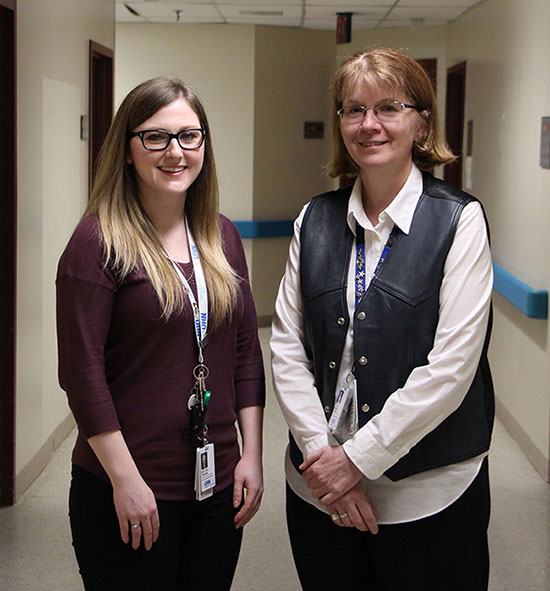
For the first time this June, The Michener Institute of Education at UHN is running a Situational Awareness and Verbal De-escalation course.
The four-hour workshop is designed to empower health care professionals and administrative staff who interact with patients by teaching them to recognize and manage escalating or threatening situations in a way that will prevent harm to themselves or their patients.
“People in the hospital would approach me and Brittany time and time again about providing tips to point-of-care staff around verbal de-escalation and situational awareness,” says Aideen Carroll, Nurse Educator for Mental Health and course facilitator. “I calculated that within a four-month period, I was asked about 13 times to provide information at professional development days, for unit councils and in orientation, and that’s when I saw the need for something like this.”
Shortly after, the Continuing Education team at Michener approached Aideen and her co-facilitator Brittany about designing such a course.
In hospital, staff may encounter patients and visitors in emotional distress. However, many educational programs for health care professionals don’t incorporate mandatory training on best practices for how to communicate with a patient who is distressed.
As a result, staff say they gain this knowledge through experience working in a clinical setting, observing their colleagues, trial and error or observing security protocols. Staff are asking for communication tips on de-escalation and that is ultimately the purpose of this course. To address that ask and meet the requested need.
“Often, staff may go straight to restraints when a patient is becoming visibly agitated and it may be due to lack of knowledge on how to effectively de-escalate somebody,” says Brittany Jenkins, Advanced Practice Nurse Educator for the Emergency Department and course facilitator. “Evidence shows that if we are effectively de-escalating, we can reduce the need for restraints.”
In the workshop, Aideen and Brittany will identify what situational awareness means and its various components, how to identify when someone is escalating, strategies to verbally de-escalate someone, and important communication and active listening skills. Participants will also have the chance to practice with simulated participants who are trained to portray roles such as patients, health care professionals and family members.
While an escalation is sometimes predictable, there are times when it isn’t. Using situational awareness and verbal de-escalation methods earlier can hopefully prevent the start of the escalation phase. This can also help staff when they know what they want to say to say to a patient, but may struggle with the approach and how to relay their message in a way that maintains respect and restores the therapeutic relationship between patient and caregiver.
The new learning opportunity comes at an ideal time as these skills align with the initiatives of UHN’s Caring Safely Campaign, targeted at eliminating preventable harm in the workplace, as well as the provincial quality improvement plan for reducing workplace violence.
“We hope to equip health care professionals with more tools and techniques that can work in various situations,” says Aideen. “It’s about empowering people with a skillset and giving them more confidence.”